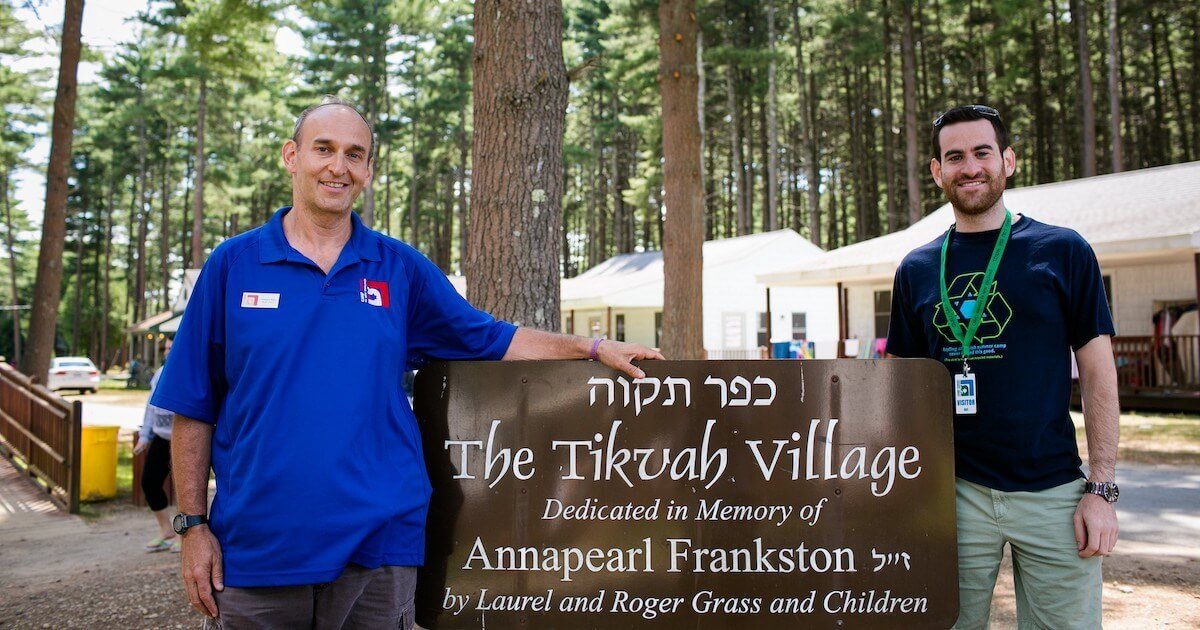Howard was interviewed for Yale’s Developmental Disabilities Clinic Newsletter – Summer 2005 edition, what follows is the excerpt containing Howard’s interview. The original newsletter can be accessed here: http://www.med.yale.edu/chldstdy/autism/summer2005.pdf
Camp Ramah, the camping branch of the Conservative Movement of Judaism, has provided special needs populations with an exciting camping experience for over 30 years. The Tikvah (meaning hope in Hebrew) Programs are located in Massachusetts, Wisconsin, California and Canada and serve Jewish adolescents with developmental delays, mental retardation, autism, Asperger’s syndrome, Down syndrome and other conditions. The overall website for Ramah’s special needs program is http://www.campramah.org The website for Camp Ramah in New England, http://www.campramahne.org states, Tikvah campers are placed in special programs that allow them to integrate into camp activities whenever possible, with appropriate supports, and special educational and social skill development.
The Tikvah Program at Camp Ramah in New England is located in Palmer, Massachusetts. It is an 8-week program for teens 13-21. Campers enjoy a variety of activities and electives, such as swimming, boating, archery and more. Pre-vocational skills training and social skills groups are other components of the program. The Tikvah Program is further divided into Amitzim for ages 13-17 and Vocational Education (Voc Ed) for 18-21 year olds. Members of the Tikvah Program go on an overnight camping trip and take several small trips throughout the summer, such as attending baseball games, horseback riding, and blueberry picking.
Camp counselors are college or graduate students carefully screened and trained by the Tikvah program director at each camp. Former Camp Ramah New England campers make up the majority of counselors. The Tikvah Program Director Howard Blas states, “We know how much the program offers campers with special needs. It is the impact on the typical campers and staff members which is truly exceptional — there are hundreds of stories of former campers who went on to work as counselors in the Tikvah program, and on to become pediatricians, psychologists, professors in special education — or just more sensitive people.†Two to three counselors live in the bunks with the Tikvah Program campers. Each summer there are an average of 23 Amitzim campers and 12 Voc Ed campers, with the camper to staff ratio being about 2 to 1.
Tikvah Program campers are fully immersed and enmeshed into a variety of aspects of Camp Ramah. They have three meals a day with the rest of Camp Ramah campers. They also participate in such camp-wide activities as Sabbath services, song and dance festivals and plays, as well as during some electives and other activities. The campers with special needs, like all campers at Camp Ramah, put on a divisional play in Hebrew and English near the end of each summer. The Amitzim campers meet with fourteen year old buddies from other divisions of camp two times a week. They have the opportunity to do a variety of activities together such as go on nature walks, rehearse lines for the play, listen to music together, etc. Fifteen and sixteen year old campers also interact with Amitzim members during swimming, sports, and in the process of preparing to become future camp counselors.
The Voc Ed members, who are also full members of the Ramah community, can be found learning hospitality skills by preparing guest rooms for valued guests to the camp, delivering mail to other campers, helping recycle, picking vegetables from the gardens for meals and much more.

